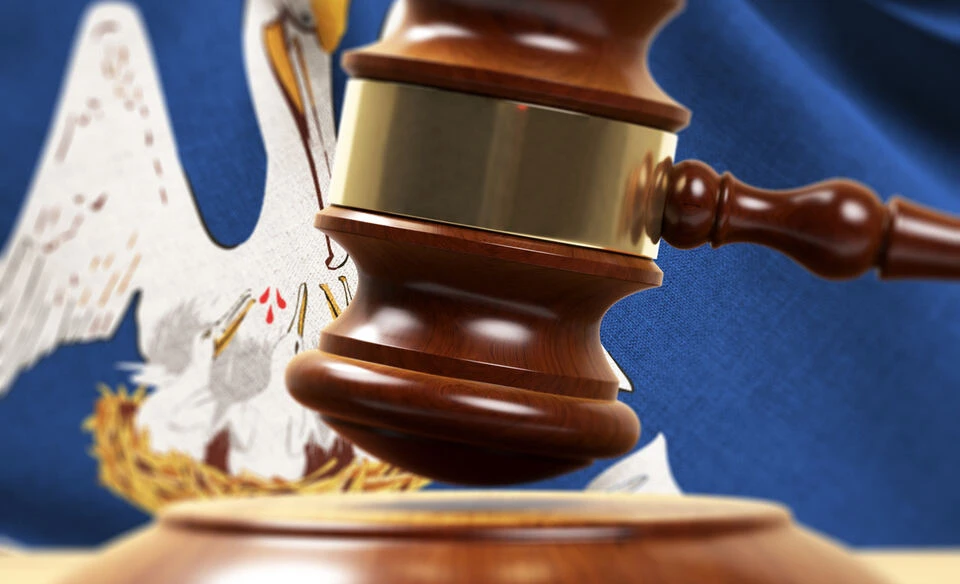
Growing Movement Against Sweepstakes
Louisiana is the latest state to take a swing at sweepstakes-style online casinos — but this time, it’s not just the platforms that could take the hit.
A new bill, SB 181, introduced by Senator Adam Bass (R), would ban social sweepstakes casinos outright and classify them as illegal gambling under state law. But the bill doesn’t stop there. It goes after anyone who helps run them, including software vendors, geolocation providers, payment processors, and affiliate marketing sites.
In other words, Louisiana’s not just trying to shut the front door on sweepstakes casinos — it’s looking to shut off the power, cut the internet, and lock up the toolbox too.
What’s Actually in SB 181?
The bill would classify sweepstakes-style gaming as illegal gambling — even if users don’t technically “pay to play.” That means the common legal defense used by sweepstakes casinos (i.e., offering free alternative entry methods) wouldn’t hold up under Louisiana law.
But what really sets SB 181 apart is how far it reaches.
Instead of just targeting the operators who run these platforms, the bill also calls out the entire supply chain that keeps them online and profitable:
- Geolocation services, used to verify where users are playing from
- Gaming platform providers, who power the software behind the scenes
- Payment processors, who handle sweep coin purchases and redemptions
- Affiliate marketers, who promote the platforms and drive traffic
Anyone knowingly working with a sweepstakes casino would risk being in violation of the Louisiana Unfair Trade Practices Act, with penalties ranging from $10,000 to $100,000 per offense.
It’s a major escalation and a clear sign that Louisiana lawmakers are done letting these platforms operate in the state’s legal grey areas. The goal is to make it so legally risky to do business with sweepstakes operators that the industry can’t survive in the state at all.
The Industry’s Response? Loud and Unhappy.
The Social and Promotional Games Association (SPGA) didn’t mince words. In a blistering statement, the trade group called SB 181 “reckless,” “misguided,” and a direct threat to Louisiana’s economy and tech sector.
Their core argument is that the bill draws no clear line between illegal gambling and everyday promotional tools. In their view, the language is so broad it could sweep in everything from fast-food sweepstakes to in-app reward systems, even loyalty programs used by brands like Starbucks or Marriott.
SPGA also warned the legislation could scare off investors and slow down innovation, particularly in Louisiana’s growing AI and digital tech economy.
“SB 181 sends a chilling message to investors,” the group said. “It threatens lawful businesses and undermines the legal frameworks that support innovation.”
They also took aim at the process itself, criticizing lawmakers for pushing the bill forward without meaningful industry input.
“Lawmakers should hit pause,” SPGA added, “and work with experts to build smarter policy, not legislation that punishes legitimate businesses just to target a few bad actors.”
Whether or not the bill passes, one thing is clear: the sweepstakes industry sees this as an existential threat, and it’s not backing down quietly.
How Louisiana Fits Into a Bigger National Trend
SB 181 isn’t happening in a vacuum. Across the U.S., 2025 has brought a wave of bills aimed at shutting down, or heavily regulating sweepstakes-style casinos that have long operated outside traditional gambling frameworks.
Here’s how other states are moving:
- New York (SB 5935): Would ban dual-currency sweepstakes platforms and extend penalties to vendors and affiliates who help power them.
- Connecticut (SB 1235): Blocks sweepstakes operators from offering any kind of simulated casino or sports betting experience, and this a direct strike at their core business model.
- New Jersey (S4109 & S4282): Treats sweepstakes casinos as internet gambling, requiring full licensure, regulation, and tax compliance.
- Maryland (SB 860): Passed the Senate unanimously, imposing a full ban on sweepstakes-style gaming.
- Mississippi (SB 2510): Nearly crossed the finish line, but fell apart late after lawmakers tried to combine it with mobile sports betting, in a move that proved too divisive.
What’s new and telling, is how many of these bills now target not just operators, but the entire ecosystem that helps them function.
Why This Bill Hits Differently
By expanding the legal risk to third-party companies, SB 181 could have a chilling effect far beyond Louisiana’s borders.
Tech providers who’ve quietly powered sweepstakes platforms, or accepted their ad dollars, may now rethink those partnerships. And if other states follow suit, the entire business model could unravel fast.
There’s also a legal gray zone here. If affiliate marketers or backend vendors are “knowingly enabling” gambling under unclear legal definitions, what does that actually mean in court? How much knowledge is enough? Who decides? That’s a question courts may end up answering.
What’s Next
For now, SB 181 is still in motion, and lawmakers haven’t finalized its fate. But one thing’s clear: Louisiana isn’t just dipping its toe in, it’s coming in swinging.
If the bill passes, it could set a new bar for how states regulate sweepstakes platforms, not just by going after the games themselves, but by targeting the entire infrastructure that keeps them running.
And if the SPGA is right, the fight over SB 181 could be just the beginning.

Blaise Luis

